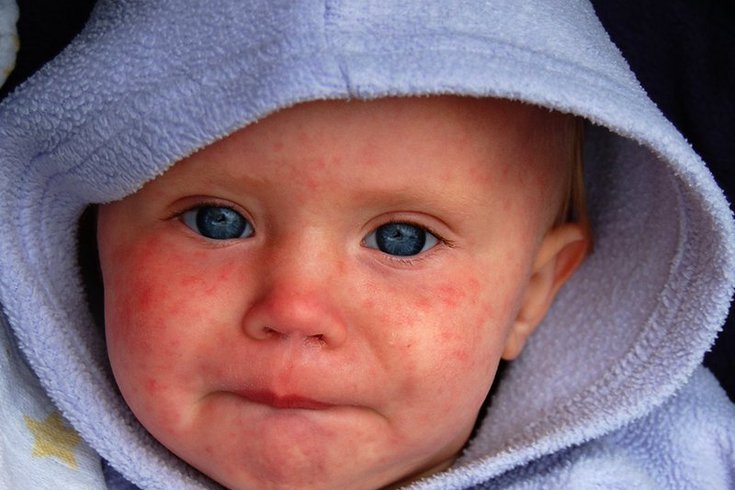
July 27, 2023
 Dave Haygarth/via Flickr Creative Commons
Dave Haygarth/via Flickr Creative Commons
One measles case has been confirmed in Montgomery County in an unvaccinated child, according to officials. Measles is a highly contagious respiratory infection that can cause rashes, high fevers and other complications.
One measles case has been confirmed in Montgomery County in an unvaccinated child, according to the Montgomery County Office of Public Health, which is currently assessing the situation.
Investigators are working in conjunction with the child's guardian and local health care facilities to complete contact tracing. They are notifying individuals who may have been exposed to measles, the MCOPH announced Thursday.
Typically occurring in childhood, measles is a highly contagious respiratory infection caused by a virus, which can linger in the air and on surfaces for up to two hours after an infected person leaves an area.
According to the MCOPH, the following locations were visited by the infected Montgomery County child. People who were at any of these places during the identified time periods may have been exposed:
• July 20, 2023, 12:30-6:30 p.m. — Bryn Mawr Hospital Emergency Room, 130 S. Bryn Mawr Ave., Bryn Mawr, Penn. 19010
• July 20, 2023, 5:15-8:15 p.m. — Costco Wholesale, 740 Upper State Road, North Wales, Penn. 19454
• July 21, 2023, 5:30-9:45 p.m. — Children’s Hospital of Philadelphia Emergency Department, 3401 Civic Center Blvd., Philadelphia, Penn. 19104
• July 22, 2023, 5-8 p.m. — Walmart Supercenter, 1515 Bethlehem Pike, Hatfield, Penn. 19440
• July 23, 2023, 9:15 a.m. to 5:45 p.m. — Children’s Hospital of Philadelphia Middleman Family Pavilion Emergency Department, 550 S. Goddard Blvd., King of Prussia, Penn. 19406
Individuals who believe they were exposed to measles should review their immunization records to determine if they are protected against the disease, as well as monitor themselves for fever or unexplained rash 7-21 days after being exposed. They also should notify their health care providers about the exposure if they are pregnant, have an infant or a weakened immune system or are unvaccinated.
Here is some important information to note about measles:
Measles symptoms typically begin with high fever, cough, runny nose and red, watery eyes. Two to three days after symptoms start, patients may see tiny white spots inside the mouth. A few days later, a rash of flat red spots will begin to spread from the face down to the feet.
Measles can be dangerous and even fatal, particularly for babies and young children. It can lead to complications such as ear infections, diarrhea, pneumonia and encephalitis (brain inflammation).
There is no specific treatment for measles, but rest or medication may be suggested by health care professionals to relieve symptoms.
The measles vaccine is the best way for people to protect themselves from the infection, according to the CDC. The vaccine — called the measles, mumps and rubella (MMR) vaccine — is a routine vaccination usually given in two doses to children.
Anyone who is not fully vaccinated can get the disease. Measles was eliminated from the U.S. in 2000 through an effective vaccination program, but that elimination status has been threatened through the years by outbreaks, like the one that occurred in 2019.
Follow Franki & PhillyVoice on Twitter: @wordsbyfranki
| @thePhillyVoice
Like us on Facebook: PhillyVoice
Have a news tip? Let us know.